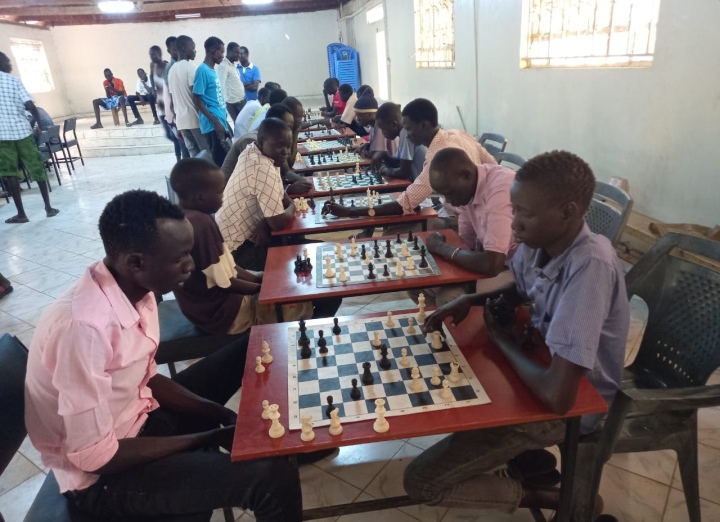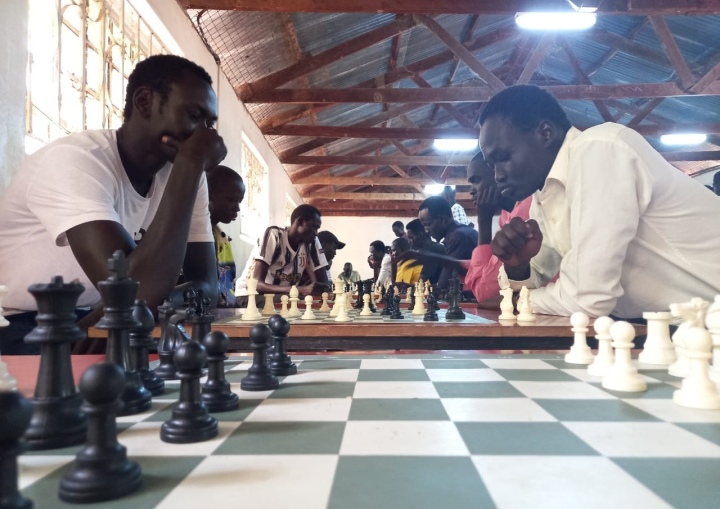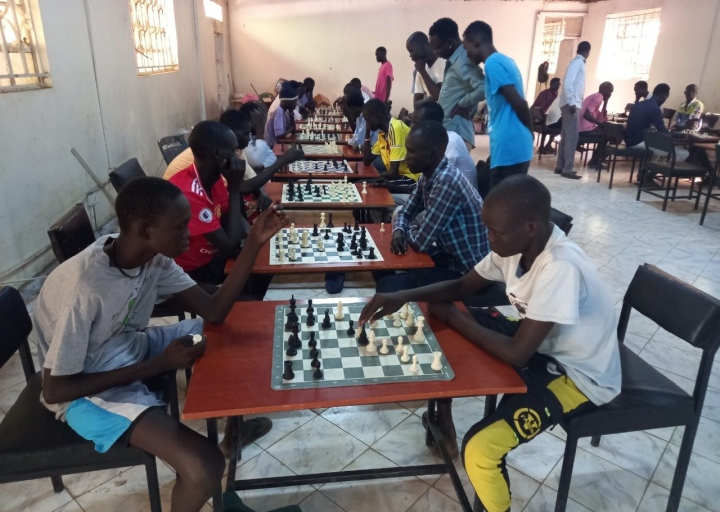The Chess for protection project aiming to consolidate and develop the playing of chess in Kakuma Refugee Camp in Kenya starts on August 02.
Chess often serves as a tool for empowerment that helps to enhance the psychosocial wellbeing of people, to reach their full potential, regardless of their background. The game can also make a huge impact in the lives of young people, giving them new learning opportunities and engaging in meaningful activities where they have a chance to heal, develop and grow. These are the aims of the Chess for protection project, implemented by the International Chess Federation, the UN refugee agency (UNHCR), Lutheran World Federation (LWF), Kenya Chess Federation and Kakuma Chess Club is expected to consolidate and develop the playing of chess in Kakuma Refugee Camp in Kenya.
The kick-off event of the project starts on Monday, August 02 at 10:00 a.m. Kenya time (9:00 CET). It includes an online opening ceremony with key speakers such as UNHCR representative Fathiaa Abdalla, FIDE President Arkady Dvorkovich, Chess Kenya President Benard Wanjala and others and a simultaneous exhibition played between FIDE Managing Director Dana Reizniece-Ozola and members of Kakuma Chess Club. The arbiter at the simultaneous exhibition will be IA Shohreh Bayat.

The program aims to raise awareness about the availability of chess as a sport including the opportunities it presents to talented players. It will also provide training to improve players’ knowledge and life skills which will, in turn, be passed to others. Linkages and networks will also be created with the larger chess community in Kenya and globally for greater development of chess in the camp and external opportunities for the professional development of players.
Many young women and girls find it difficult to meaningfully engage in education and extra-curricular activities due to negative cultural norms that often prevent them from equal access to opportunities. Chess for Protection project includes activities of Girl Club Project under the leadership of FIDE Vice President Anastasia Sorokina, such as meeting and communicating with successful women, reading and discussing books, painting workshops and many others.

Chess has been predominantly embraced by the youth from Kakuma and currently, 180 club members are actively participating in chess. Building on existing chess activities, the International Chess Federation will further bring in the experience and expertise of chess programs to contribute to the protection and well-being of refugee youth and adolescents and elevate chess to the level of key activities through which young people are engaged.
The project is expected to directly benefit 1.600 learners, with various levels of chess proficiency through online presentations, provision of play materials and equipment, training and mentorship. Further, it is estimated that another 800 individuals from various parts of the camp community at large will be affected indirectly in various positive ways.

Background
Kenya is one of the biggest refugee-hosting countries in Africa and the world, hosting over 508,000 refugees mainly from the Great Lakes and Horn of Africa region. Over 40% of all refugees reside in Kakuma refugee camp. The majority of the refugee population in Kakuma and Kalobeyei consists of children and youth.
Having been forced to flee from their homes, youth and adolescents are exposed to extreme stressors that may impact their psychosocial well-being. Further, 30% of children in primary school age and 94% at the secondary school age are out of school and not engaged in any income-generating activities, leaving them vulnerable to risks related to idleness such as developing stress, disorientation and hopelessness which predisposes them to engage in dangerous and risky behaviours – crime, violence, drugs, gang activities, and survival sex – as a means for coping with the situation.
Further, many young women and girls find it difficult to meaningfully engage in education and extra-curricular activities due to negative cultural norms that often prevent them from equally accessing opportunities. They are expected to take care of family members while their parent/parents are working, which leaves them with very little time for learning opportunities.







